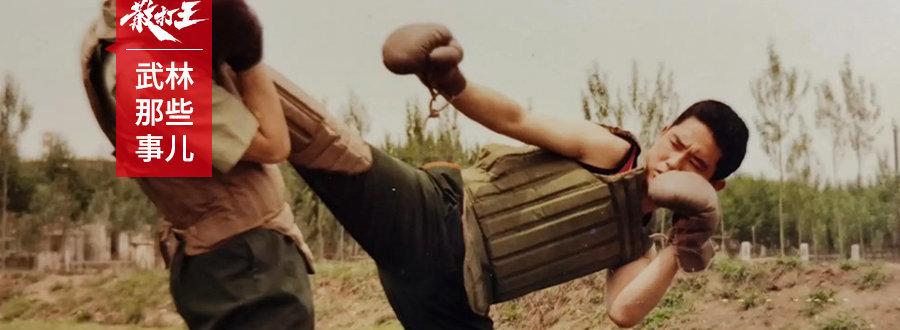
This article was published in 1990 in the magazine "Chinese Martial Arts", the original title was "Ten Years of Sweat Bear fruit".
3 firsts in history
In 1989, the National Wushu Loose Hand Ring Tournament was held in Yichun, Jiangxi. This game made 3 all-time "firsts".
First, 25 participating teams made history. In the past, the annual casual exhibition competition was basically 12 "pilot" teams participating, but this time there were 26 teams that signed up, and 25 teams officially participated in the final competition, and one team did not come temporarily.
Second, the audience exceeded 30,000 people. Although it is held in the small southern city of Yichun, there is a lot of interest in martial arts and loose hands.
Third, for the first time, the television crew recorded the entire video. At the scene of the competition, a Taiwanese television station recorded the video data of the competition throughout the game. The national martial arts sanda competition has also been disseminated through television media to Hong Kong, Macao and Taiwan outside the Chinese mainland.
The race was remarkable
In this competition, the sports technique and tactics have also been greatly improved, and the game is better. In the competitions of the past few years, many athletes only knew how to use brute force, and they fought with their own strength to rush, beat and fall, and many people actually won the competition.
But in this competition, the "random fight" has been significantly reduced. For example, in the confrontation between the veteran zhuang hai of the former guard and the inner Mongolian team Chen Gang, Chen Gang wanted to win with brute force, but Zhuang Hai took the retreat as an advance, led the opponent to the side of the stage, took the initiative to fall to the ground, and knocked the opponent under the stage with a "rabbit pedaling eagle", thus winning the game. It is worth noting that the rule at that time was that as long as the opponent was knocked out of the ring, he could win a game.
Many players with superb leg skills performed serial leg techniques and scored points in succession, which made the audience addicted.
Folk loose hand practitioners
The technical and tactical level of athletes has been greatly improved
In this game, because the level of the players is closer, the accident of accidental injuries in the game is also much less. In the previous years of the game, there were knocked out, front teeth were knocked out, skin was open, and abstentions abounded in the middle of the game. However, in this competition, the completion rate is relatively high. It can be seen that the level of technology is inversely proportional to sports trauma.
Of course, compared with the current competition, this national martial arts loose hand ring competition has some "deficiencies", mainly manifested in the athletes' poor awareness of continuous attack. Some athletes are "soft-hearted", one side sorts out the helmet or makes some small moves, the referee does not shout to stop, and the other side of the athlete consciously does not attack; one side of the athlete is hit, there is a chaotic pace, stumbling, and the other side of the athlete does not dare to "chase and fight".
Chinese Martial Arts magazine published "Bridge Crossing" in 1990
Fledgling Fujian team
There was a team that attracted the attention of many people in the competition- the Fujian team, the main body of which was the "Xinhu Wushu Gymnastic Loose Hand Team" founded by a self-employed person in Shishi City, Fujian Province, and the members were almost all peasant children. In the end, 5 members of this team also achieved good results, 1 person won the seventh place, and 4 people won the eighth place.
Who would have thought that after 32 years, the Fujian team grew into a strong team in China, and in the Wushu Sanda competition of the National Games, the Fujian men's team won the bronze medal in history.
This article is reprinted from Chinese Wushu magazine
Some of the pictures are from the Internet, if there is any infringement, please contact to delete
Author: Fang Jinhui
Editor-in-Charge: Valley Lily